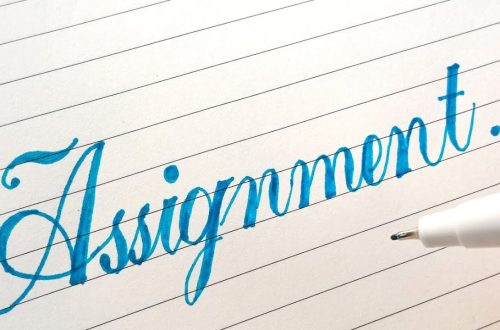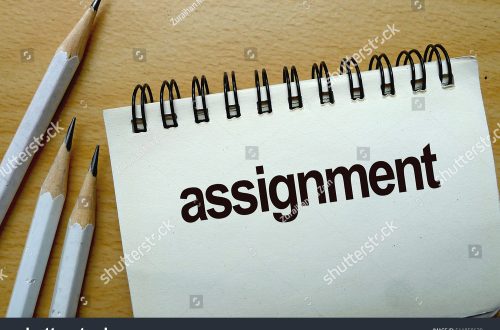
How To Write Music Assignment
When it comes to writing music assignments, there are a few things that you need to keep in mind. First, be sure to read the assignment carefully, and make sure you understand what is expected of you. Next, come up with a plan for how you will approach the project. Will you write a song, or create a composition? Will you use traditional instruments, or will you experiment with electronic sounds? Once you have a plan in place, get to work! Be sure to take your time and to experiment with different sounds and techniques. When you are finished, be sure to proofread your work, and make any necessary corrections. Finally, submit your assignment according to the instructions provided by your instructor.
How can I start writing an assignment?
There are a few things to keep in mind when starting an assignment, whether it is a research paper, essay, or project.
1. Read the assignment carefully and make sure you understand what is expected.
2. Make a plan. This may include outlining your ideas, creating a timeline, or making a list of resources you need to gather.
3. Start writing! Don’t wait until the last minute to start your assignment.
4. Proofread and revise your work. Make sure it meets the assignment guidelines and is free of errors.
What are the examples of writing assignments?
There are many different types of writing assignments that students may be asked to complete during their academic careers. The following are a few examples of common writing assignments:
1. Essays – An essay is a written composition that typically discusses a particular topic or issue. Essays may be argumentative, analytical, descriptive, or expository in nature.
2. Research Papers – A research paper is a written document that presents the results of original research. Research papers may be argumentative, analytical, or expository in nature.
3. Term Papers – A term paper is a written assignment that is typically due at the end of a semester or term. Term papers may be argumentative, analytical, descriptive, or expository in nature.
4. Book Reports – A book report is a written assignment that typically entails describing a book that has been read. Book reports may be analytical, descriptive, or evaluative in nature.
5. Lab Reports – A lab report is a written document that presents the results of a scientific experiment or investigation. Lab reports may be analytical, descriptive, or evaluative in nature.
How do you write a music school essay?
When it comes to writing an essay for a music school, there are specific things that you need to include in order to make your application stand out.
The essay is your opportunity to show the admissions committee who you are as a musician and as a person. In addition, you can use your essay to explain why you want to attend that specific music school.
Here are some tips for writing a successful music school essay:
1. Start by introducing yourself as a musician. What instruments do you play? What styles of music do you enjoy? How long have you been playing music?
2. Explain why you want to attend that specific music school. What specific program or faculty member do you want to study with? What is it about the school’s curriculum that appeals to you?
3. Show off your writing skills. The admissions committee will be reading many essays, so make sure yours is well-written and engaging.
4. Be personal and honest. Share your thoughts and feelings about music and why it matters to you.
5. Make sure your essay is well-organized and easy to read. Break up your paragraphs into short, manageable chunks.
6. Edit, edit, edit! Make sure your essay is free of spelling and grammar errors.
7. Get feedback from someone who knows about music school essays. Ask them to read your essay and give you feedback about what works and what doesn’t.
The best way to write a successful music school essay is to start early and take your time. Be sure to revise and edit your essay several times before submitting it. And finally, don’t be afraid to ask for feedback from someone who knows about music school essays.
What should I write about in an essay about music?
When it comes to writing essays about music, there are a few things you should keep in mind.
First, think about the topic or topic sentence of your essay. What are you trying to say about music? Once you have a focus, you can start brainstorming ideas.
Second, make sure you have a good understanding of the topic. This means doing your research and reading about music as much as you can.
Third, make sure your essay is well-organized and well-written. Have a clear introduction, body, and conclusion. Use strong, clear writing throughout your essay.
Finally, be sure to cite your sources properly. Whenever you mention a fact or idea from another source, be sure to include a proper citation.
With these things in mind, you can write a great essay about music.
What is music essay introduction?
In the simplest form, music is sound that has been organized or structured in a certain way. But what is it that makes music so special? Is it the lyrics, the melody, the rhythm, or the emotions it evokes?
There is no one answer to this question. To some people, music is a form of art that can convey emotions and messages in a powerful way. To others, it’s a form of entertainment that can make them feel happy, excited, or nostalgic. And to still others, it’s a form of therapy that can help them relax or focus.
Whatever your reason for enjoying music, there’s no doubt that it plays an important role in our lives. It can help us express our emotions, connect with others, and even improve our physical and mental health. So the next time you put on your favorite song or head to a concert, take a moment to appreciate all that music has to offer.
How do you start a good introduction for an essay?
How do you start a good introduction for an essay? This is a question that students often ask, and there is no one answer that fits all essays. However, there are some general tips that can help you get started.
One of the most important things to keep in mind when starting your introduction is to make sure that it is engaging. You want your readers to be interested in what you have to say, so make sure that your introduction catches their attention. One way to do this is to use a provocative statement or ask a question.
Another important thing to keep in mind is to make your introduction as concise as possible. You don’t want to spend too much time introducing your topic, because you want to focus on discussing your topic in detail. However, you also don’t want to skimp on your introduction and give your readers little information to work with.
One way to find the right balance is to think about your introduction as a teaser. You want to give your readers enough information to interest them, but you don’t want to give away all of your secrets. Leave your readers wanting more, and they will be more likely to keep reading your essay.
Finally, make sure that your introduction is well-organized. This means that your introduction should have a clear thesis statement and a logical structure. Your readers should be able to understand what your essay is about and what you plan to argue, just by reading your introduction.
The tips above should help you get started on writing a good introduction for your essay. However, keep in mind that every essay is different, and you may need to adjust your approach depending on the topic and the assignment. If you’re not sure how to start, ask your teacher or tutor for advice.
How do you start a writing assignment?
Many students find writing assignments daunting, but with a little preparation, you can start your assignment with ease.
The first step is to read the assignment carefully. Make sure you understand the instructions and what is expected of you. If you have any questions, be sure to ask your instructor.
Next, brainstorm some ideas. Jot down some thoughts on the topic and how you want to approach it.
Once you have a general idea of what you want to say, it’s time to start writing. Start with an outline, and then flesh out your ideas. Be sure to include evidence and examples to support your points.
When you’re finished, read over your work to make sure it meets the assignment requirements. If necessary, make revisions.
By following these steps, you can start your writing assignment with ease and confidence.
How do you write an assignment format?
When it comes to academic writing, there are a few formats that are commonly used. One of these is the assignment format. This format is used to write assignments for school or work. In order to write an assignment using the assignment format, you will need to follow a specific structure.
The first step in writing an assignment using the assignment format is to introduce the topic. In your introduction, you will need to state the purpose of the assignment and provide some background information on the topic.
After introducing the topic, you will need to provide a summary of the research that you have done on the topic. In your summary, you will need to include information about the types of sources that you have used and the main points that you have found.
Next, you will need to present your own argument on the topic. In your argument, you will need to provide evidence to support your points.
Finally, you will need to conclude your assignment. In your conclusion, you will need to summarize your main points and suggest possible next steps for further research on the topic.
How do you write a music college essay?
When applying to colleges, students are often required to submit an essay. This can be a daunting task, but it is important to remember that the essay is just one part of the application. It is important to take the time to write a quality essay that will reflect your interests and your passion for music.
When writing your music college essay, it is important to be specific. Don’t just say that you love music, explain why you love music. What is it about music that has drawn you in? What pieces or performers inspire you?
It is also important to be personal and authentic in your essay. Don’t try to write what you think the college wants to hear. Write about what you truly feel.
The most important thing to remember is to be yourself. The college wants to get to know you, and your essay is a great opportunity to introduce yourself to the admissions committee.
How do you write a personal statement for a music school?
A music school personal statement is one of the most important parts of your application. It is your chance to show the admissions committee why you are interested in attending their school and what qualities you would bring to the music program.
Your personal statement should be well-written and well-organized. It should be around 500-1000 words long, and should include the following:
1. An introduction that explains why you are interested in music school and what kind of music you are interested in studying.
2. A body that explains your musical background and experience.
3. A conclusion that reiterates your interest in music school and why you would be a valuable addition to the music program.
When writing your personal statement, be sure to be specific and personalize it to the school you are applying to. Use examples to illustrate your points, and be sure to proofread your statement for grammar and spelling mistakes.
The personal statement is an important part of your application, so be sure to take your time and make it the best it can be. By following these tips, you can create a statement that will impress the admissions committee and help you get accepted into the music school of your dreams.
How do you write an introduction for a music essay?
When writing an essay, especially one about music, it’s important to have a strong introduction. This is your chance to hook your reader and make them want to keep reading. There are a few things you can do to make sure your introduction is effective.
First, start by introducing the artist or band you will be writing about. Provide a brief overview of their career and make sure to include any major accomplishments. If there is a specific song or album you want to focus on, mention that too.
Next, explain why you chose to write about this particular artist or song. What is it about their music that interest you? This is your opportunity to share your own personal connection to the music.
Finally, give your reader a sneak peak of what they can expect from the rest of your essay. What are some of the topics you will be discussing? What makes this music unique or important?
By following these tips, you can create an introduction that will grab your reader’s attention and make them want to learn more.
How do you start a school essay?
When you are writing an essay for school, the first thing you need to do is come up with a good topic. Once you have a topic, you need to come up with a thesis statement. Your thesis statement is your main argument or point that you are trying to make in your essay. Once you have a thesis statement, you need to come up with a rough outline of your essay. Your outline should include the points you want to make in your essay, as well as the evidence you will use to support your points. Once you have a rough outline, you can start writing your essay. Start by introducing your topic and thesis statement. Then, make your points and support them with evidence. Finally, conclude your essay with a strong statement that sums up your argument.
How do you start a music article?
When it comes to writing about music, there are a few different things you need to consider before you start typing away. What genre of music are you discussing? What era? What style? Who are the artists involved? What are the important songs? Once you have all of that figured out, it’s time to start putting together your article.
The best way to start a music article is to give a little bit of background information on the genre, era, and style you’re discussing. For example, if you’re writing about rock music from the 1950s, you might want to start by discussing the origins of rock ‘n’ roll and how it developed throughout the decade. If you’re writing about a specific artist, you might want to start by discussing their biography and how they’ve influenced the music industry.
Once you’ve established some context, it’s time to start discussing the important songs and albums in the genre, era, or style you’re writing about. If you’re writing about a specific artist, you might want to discuss their most popular songs and why they’re so iconic. If you’re writing about a specific album, you might want to discuss the composition of the album and how it was received by critics and fans.
In addition to discussing songs and albums, you can also discuss the artists who created them. For example, you might want to discuss the personal lives of the artists and how that influenced their music. You might also want to discuss the political and social climates of the time and how that influenced the artists’ work.
When you’re finished writing your article, it’s important to make sure that you include a list of references so that your readers can explore the music further. If you’re writing about a specific artist, you might want to include a list of their albums and where they can be purchased. If you’re writing about a specific genre or era, you might want to include a list of recommended songs or albums.
No matter what, make sure that you proofread your work before you submit it. A music article is only as good as its writing, and it’s important to make sure that your work is polished and professional.
How do you write a good music article?
If you’re passionate about music, writing about it can be a fun and rewarding experience. But writing a good music article isn’t always easy. Here are a few tips to help you get started:
1. Start with a strong introduction.
Your introduction should capture your reader’s attention and introduce them to your topic. It’s a good idea to include some interesting facts or anecdotes about the artist or band you’re writing about.
2. Be sure to include quotes.
Quotes can help add authority and credibility to your article. They also help break up the text and make your article more interesting to read.
3. Make sure your article is well-researched.
Before you start writing, take the time to do some research about your topic. This will help ensure that your article is accurate and provides your readers with the information they’re looking for.
4. Use strong adjectives and descriptive language.
Musicians are often described using colorful adjectives. Try to capture the essence of the artist or band you’re writing about by using descriptive language.
5. Use engaging images.
Images can help add visual interest to your article and help your readers better understand what you’re trying to say. Make sure to choose images that are relevant to your topic.
6. Edit, edit, edit.
Once you’ve finished writing your article, take the time to edit it carefully. Check for grammar mistakes, spelling errors, and factual inaccuracies.
Writing a good music article can be challenging, but it’s definitely worth it. By following these tips, you can help ensure that your article is both informative and engaging.
How do you write music content?
When it comes to creating music content, there are a few things you need to keep in mind. First, you need to come up with a catchy and interesting title that will draw in your readers. Next, you need to make sure your article is well-written and easy to understand. Finally, you need to include plenty of examples and/or screenshots to help illustrate your points.
When it comes to writing about music, there are a few different things you can discuss. For example, you could write about how to write songs, how to create rhythms, or how to come up with melodies. You could also write about the history of music, the different types of music, or the performers and composers who have influenced it.
No matter what topic you choose to write about, it’s important to be clear and concise. Make sure to use easy-to-understand language, and avoid using too much technical jargon. You should also try to include plenty of examples to help illustrate your points.
If you’re having trouble coming up with ideas, it can sometimes help to look at other articles on the same topic. This can give you a better idea of what sorts of things people are interested in reading about. You can also find inspiration in music itself – listen to your favourite songs and try to figure out what makes them so catchy.
In the end, it’s important to be creative and have fun with your writing. After all, music is a form of art, and there are no right or wrong ways to approach it. So go ahead and experiment with different styles and techniques, and see what works best for you.
How do you write a newspaper article about music?
When writing about music for a newspaper, there are a few key things to keep in mind. Firstly, think about your audience – who are you writing for and what do they want to know? Secondly, be concise and specific – don’t overload your readers with too much detail, and make sure all your information is relevant. Finally, use strong, interesting quotes to help bring your article to life.
When composing your article, it’s important to start with a catchy headline. Your headline should give your readers a brief overview of what the article is about, without giving away too much. For example, “John Lennon’s Songwriting Legacy to be Honoured with New Album”.
Once you’ve got your headline, it’s time to start writing the body of your article. Begin by introducing your topic and giving your readers some background information. Then, move on to discussing the main points of the story. Try to keep your writing concise and easy to follow, using strong, active verbs to help convey the story.
Finally, wind up your article by providing a brief conclusion. Let your readers know what you think is the most important thing they should takeaway from the story, and leave them with something to think about.
When writing about music, it’s important to be specific and to focus on the relevant details. For example, rather than discussing an artist’s entire career, try to focus on a specific album, tour, or performance. This will help to keep your article concise and easy to read.
It’s also important to use strong quotes to help bring your article to life. Quotes can help to capture the essence of the story, and they can also help to add colour and flavour to your writing. Be sure to choose quotes that are relevant and interesting, and make sure to credit the source of the quote.
Finally, be sure to proofread your article before submitting it. Check for spelling and grammar mistakes, and make sure that all your information is accurate.




